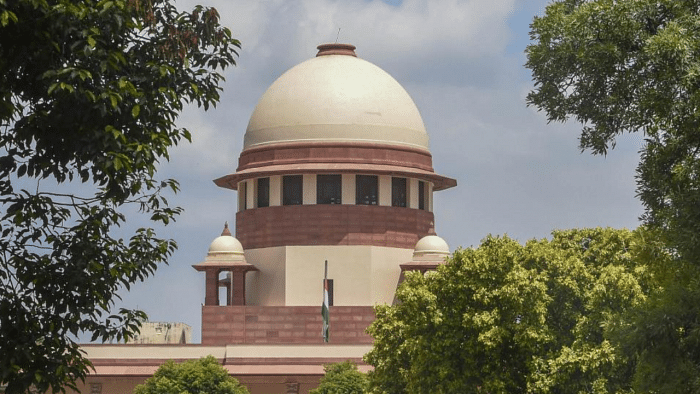
The Supreme Court on Thursday expressed serious concern over the misuse of sedition provision, wondering if there was a need for a "colonial" law after 75 years of independence.
"The penal law was used by the British against Mahatma Gandhi and Bal Gangadhar Tilak to suppress freedom movement and it still being abused is a serious threat to individuals and institutions," a three-judge bench presided over by Chief Justice N V Ramana said.
"Is the sedition law of colonial times which was used to suppress freedom movement still needed 75 years after independence?" the bench asked Attorney General K K Venugopal.
The court was hearing a fresh PIL by Mysuru-based Major General (retired) S G Vombatkere questioning the constitutional validity of Section 124 A (sedition) of IPC, which carried a maximum penalty of life imprisonment.
Venugopal, for his part, submitted that the court may not require to strike down the provision completely but certainly can lay down parameters to check its abuse. He said a separate bench led by Justice U U Lalit had already issued notice on a similar petition and posted the case for further hearing on July 27.
The court, for its part, preferred to make observations against misuse of the provision.
"If you see history of charging this Section, conviction rate is very low. Alarming numbers of misuse can be compared to a carpenter using a saw to cut not only a tree but the entire forest," the CJI said.
Giving an example of Section 66A of the IT Act, the court said thousands of case were still registered even after the provision was struck down in 2015.
"If any police want to fix somebody, they can invoke Section 124A also. It has been used against villagers for stealing hens. Everybody is a little scared when this Section is invoked. These are all issues that need to be looked into. Our concern is misuse of the law and no accountability of the executive. I will look into other cases referred to," the CJI said.
The bench, also comprising Justices A S Bopanna and Hrishikesh Roy, wondered when the current government has removed so many stale laws, why it failed to act against Section 124A of the IPC.
Senior advocate Shyam Divan said a similar plea has been filed by the Editors Guild of India which can also be taken along with the pending matters.
The court issued notice on Vombatkere's petition and decided to examine the matter.
Solicitor General Tushar Mehta submitted once the Centre filed its reply in the matter, the work of the top court would be reduced.
The top court in the Kedar Nath Singh case (1962) had clarified that only those acts, which involved incitement to violence or violence, constituted a seditious act under Section 124 A of the Indian Penal Code.
